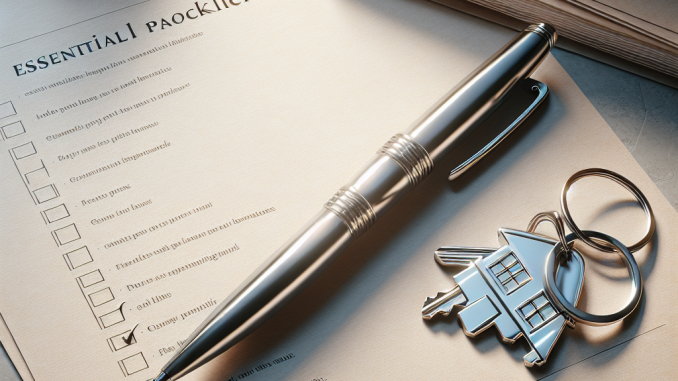
Key Insights at a Glance
- Securing a mortgage and sealing the deal on a property entails navigating through an avalanche of documents.
- The paperwork usually demands exhaustive financial details — ranging from pay slips and tax returns to bank records.
- Maintaining meticulous order, especially during underwriting and closing, is crucial to dodge unnecessary hold-ups.
Embarking on the journey to buy a house is a hefty commitment, and the paperwork required can feel equally daunting. Various stages of the process call for different sets of documents, so prepare to validate your employment, income streams, and furnish a thorough breakdown of your debts, savings, and assets.
Getting your paperwork ducks in a row before diving into the house hunt will streamline the experience immensely. Expect to gather (but not be limited to) the following files:
- Latest tax filings
- Recent W-2s
- Employer verification letters confirming your job status
- If self-employed, business returns and profit-loss statements
- Bank account statements
- Statements from retirement and brokerage accounts
- Student and auto loan documents
- Credit card statements
- Proof of ownership for any current homes or vehicles
- Residency history — a rundown of your past addresses over several years
- Documents proving additional income — think alimony, Social Security, bonuses, etc.
Credit scores around 620 typically unlock mortgage eligibility, though certain loans accept lower thresholds. Your borrowing power generally scales with your credit rating, so if your score is less than stellar, consider boosting it well before loan applications. Procrastinating on this front only tightens the screws.
If tax filing hasn’t been your strong suit, now’s the moment to rectify that. Lenders usually request two or more years of tax returns for underwriting purposes. “If taxes haven’t been filed, that’s your starting point,” advises Trenesha Harrison, broker/owner and Realtor at iLove Realty in Oklahoma.
Crunching Numbers: Mortgage Preapproval Paperwork
The paperwork intensity spikes at the preapproval stage. Brace yourself to submit detailed evidence of income beyond your primary job earnings.
Assets
- Statements from investments, trusts, retirement plans, and other financial holdings
- Ownership proof for vehicles and other real estate properties
- Documentation if a third-party gift contributes to your down payment
Debts
- 60 to 90-day recent statements for credit cards, auto loans, personal loans, and student debt
Credit History
- A current credit report copy
- Rental payment records, if applicable, for apartments, homes, or even vehicles
Mortgage preapproval offers a sneak peek at your borrowing ceiling and signals to sellers that you’re a credible contender. That said, tapping every cent of your approved limit isn’t always wise — other expenses lurk around the corner.
The earnest money deposit you put down as a gesture of your commitment usually comes due during the contract signing phase. Whether or not you’re partnering with an agent or realtor, and especially for new constructions, this step carries both legal and financial weight.
When closing day arrives, funds will officially trade hands. Be on the safe side by knowing exactly how much to pay and where — having certified or cashier’s checks ready is non-negotiable.
Documents to Have at Closing
In the absence of a real estate agent or legal counsel, double-check that all critical paperwork is present at signing. Items like the home title (often held via a title company) and ownership declarations are indispensable.
Why Enlist a Real Estate Agent?
Having a savvy real estate agent in your corner can alleviate the pressure of chasing down paperwork. Their expertise shines brightest when making offers and prepping for closing — they’ll know exactly which docs are vital and when to present them, navigating you seamlessly through the maze.
Common Questions Answered
What should I bring to a house closing?
A government-issued photo ID (passport or driver’s license) plus evidence of homeowners insurance are must-haves. Also, bring a copy of the purchase agreement and loan application—though typically, your lender handles those. Don’t forget to confirm payment methods for closing costs ahead of time; certified checks, cashier’s checks, or bank wire transfers are standard fare.
What proof of income is required when buying a house?
Demonstrate your earnings with pay stubs, bank statements, recent tax returns, and W-2 or 1099 forms. These records may span several months or even years. Should you wish to include alternate income sources like investment dividends or alimony, prepare appropriate documentation to trace those funds.
Mortgage-Related Financial Facts in Numbers
| Tax Returns | 2-3 years |
| Credit Report Validity | 30-60 days |
| Bank & Loan Statements | Last 60-90 days |
| Minimum Credit Score for Conventional Loan | Around 620 |